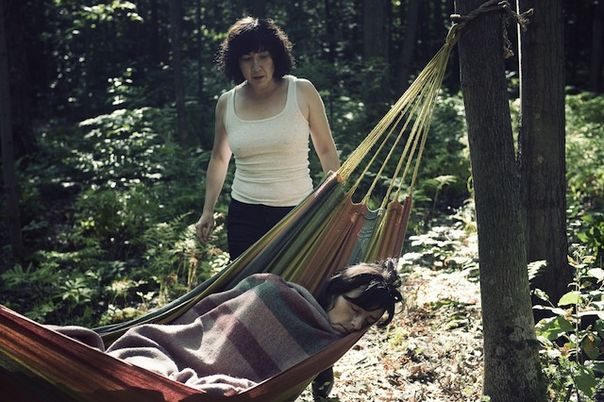A HUMAN BESTIAIRE
Denis Côté’s elegant film reveals unsuspected levels of cruelty in human nature.

VIC AND FLO SAW A BEAR
Berlinale Competition film VIC + FLO SAW A BEAR (VIC + FLO ONT VU UN OURS, Canada) tells the story of Victoria, an ex-convict who tries to reestablish her life with her girlfriend, Florence. Denis Côté reflects on the real dimensions of prison and freedom for human beings. It’s interesting to compare this film with Côté’s documentary BESTIAIRE (Canada, 2012), which collected images of animals in unnatural situations inside a Quebec zoo. The parallel and the analogies of captivity are obvious. Like the animals of BESTIAIRE, the protagonist of VIC + FLO SAW A BEAR is also in an unnatural situation. Though supposedly released from prison, she is still under the daily control of a parole officer. Seeking freedom, she refuses contact with people and prefers to hide in the forest. Once again, Côté uses a stationary camera and elegant compositions to contrast the beauty of the images with a cruel reality. And in this film, too, he gathers together a “bestiaire“ of weird characters around the lesbian couple: the ghostly parole officer, a mysterious woman seeking revenge, and a crippled old man who can’t talk but observes everything from his wheelchair.
Vic and Flo suffer to unsuspected degrees. When we think some incidents are unbelievable, Côté hits us with an irony: “Horrible people like us don’t exist”, says one of the characters, but, in fact, these people do exist. These humans are uncontrolled animals abusing their freedom (or taking vengeance for the lack of it).
At the end of VIC + FLO SAW A BEAR, it seems to be easy to separate the characters between good and bad, order and chaos, but human nature, as the film reveals, mixes everything together. The delirious outcome of the film works as the logical consequence of its dark and absurd situations. With a calculated use of black humor and a succession of strong scenes, Côté manages to construct a splendid and daring film.

